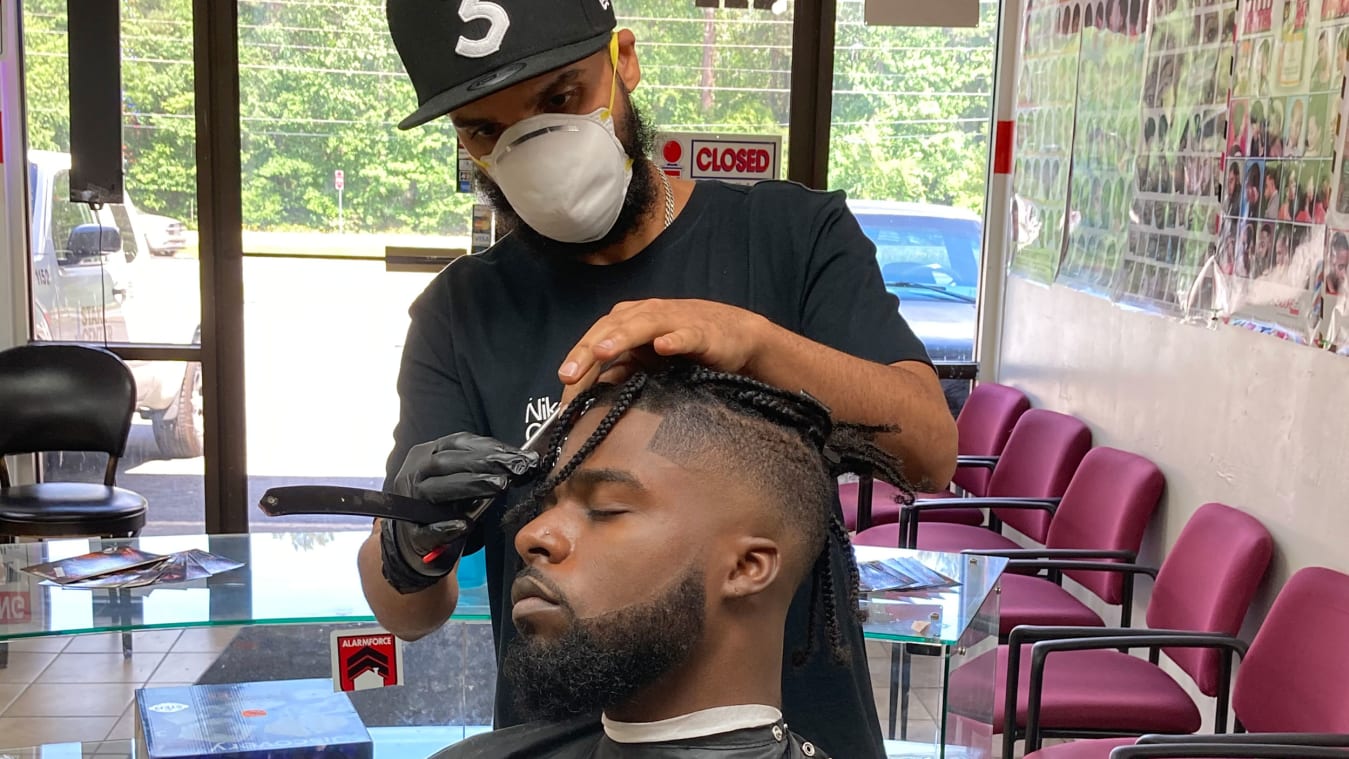
The hair salon has always been an especially intimate environment. It is a place where close contact is non-negotiable -- a hair stylist massages your scalp with the pads of their fingers; a barber leans in close to shape up your hairline.
All that stopped when the coronavirus forced salons and barbershops in many countries to close, temporarily breaking the bond between stylist and loyal client, and curtailing the camaraderie and community of many barbershops.
From Atlanta to Dubai, many of us rely on our hairdressers, braiders and colorists to help us craft the image we show to the world, which plays an important role when it comes to our self-esteem. And from the number of social media posts about home buzz cuts and rapidly growing roots (as well as the rise of black-market haircuts), their absence has been felt.
But for the industry, hair is more than just a matter of identity or creativity: It's a business. And as lockdowns ease around the world, salon owners and employees are returning to workplaces that have been crucially transformed.
"It's like opening a brand new salon," said colorist Maria Dowling, whose namesake salon in Dubai reopened on April 26 after a month-long shutdown. "It's the new era."
Under lockdown, the financial burden of closure bills has fallen on stylists and owners alike. But as with any industry, how people have fared in the short-term depends on a variety of factors, from geography to company structure.
While big chains and more moneyed salons often hire stylists as employees, smaller independent operations -- which make up the bulk of the industry -- rely on self-employed contractors. (For example, in the UK, 57% of people working in hairdressing and barbering are self-employed, according to a 2017 report.) In these instances, a stylist will often pay a salon owner to rent a chair in their space, and the salon owner in turn will use the money to pay themselves and cover overhead costs.
Delphine Courteille, whose eponymous business is a buzzy, millennial-pink alon near the Jardin des Tuileries in Paris, had her rent and utilities payments suspended while it was closed, thanks to France's plan to help small businesses, and her employees received 84% of their wages as part of the state-backed partial unemployment scheme. In Dubai by contrast, Dowling paid her staff and overheads out of her own pocket during closure because the Dubai government didn't provide assistance to small businesses.
"Some of my friends in the UK who have got salons, said that once they knew that they could put their staff on this furlough and get paid 80% or whatever, it was a no-brainer for them... But for us, we didn't get any of that," Dowling said in a phone interview, referring to the British government's scheme to pay furloughed workers 80% of their salary until the end of October.
"As a salon owner, there's a lot of responsibility on me because you want to keep your staff, you want to be faithful to your staff. You want them to respect you at the end of it all and think, 'She did everything she could for me,'" Dowling said.
Without the option to work from home, and without corporate or government aid to support themselves, returning to work is often the only way forward for stylists and business owners.
So in spite of the controversy surrounding Georgia Governor Brian Kemp's decision to lift lockdown measures for businesses on April 24, after just three weeks, Youssef Barber, the owner of Diamond Cuts Barber Studio, which has two locations in Atlanta, welcomed the change.

